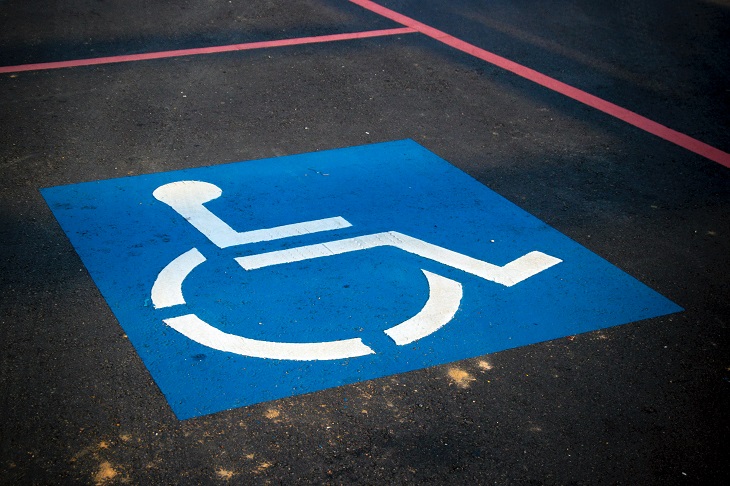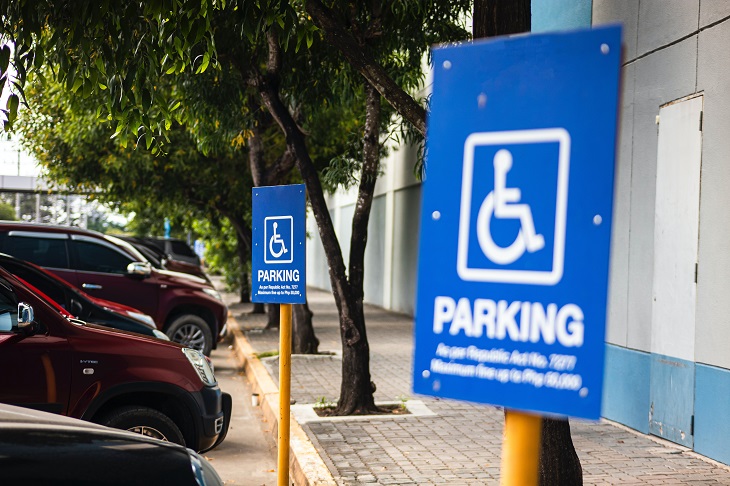Disabled parking permits play a crucial role in ensuring equal accessibility and convenience for individuals with disabilities. In Colorado, obtaining a disabled parking permit can make a significant difference in the lives of those who face mobility challenges. Whether you’re a veteran, senior citizen, or an individual with a temporary disability, understanding the process and requirements for obtaining a disabled parking permit in Colorado is essential. In this comprehensive guide, we’ll explore the various aspects of the disabled parking permit application process in Colorado, including eligibility criteria, application methods, renewal procedures, and more.
Colorado Disabled Parking Permit Application
The disabled parking permit application is the first step in becoming authorized to use designated accessible parking spaces in Colorado. The permit allows individuals with disabilities to park closer to entrances, ensuring they have improved accessibility to essential services, businesses, and public spaces. Having a disabled parking permit in Colorado helps make daily activities and errands more manageable for those with mobility challenges.
How to Get a Disabled Parking Permit in Colorado
To obtain a disabled parking permit in Colorado, follow these steps:
Consult Your Doctor
Before applying for a disabled parking permit, schedule an appointment with your healthcare provider. They will assess your medical condition and determine whether you meet the eligibility criteria for a permit.
Understand Eligibility Criteria
Familiarize yourself with the eligibility requirements for a disabled parking permit in Colorado. These criteria typically consider mobility impairments, visual impairments, and other specific medical conditions.
Obtain Necessary Documentation
Your doctor will need to provide a signed and completed Disabled Parking Permit Application (Form DR 2219) certifying your disability and the need for a disabled parking placard or license plate.
Submit Application
Once you have the completed form and necessary medical certification, you can submit your application to the Colorado Division of Motor Vehicles (DMV).
Pay the Applicable Fee
There may be a fee associated with obtaining a disabled parking permit, so be sure to check the current fee schedule and make the necessary payment.
Colorado DMV Disabled Parking Application
The Colorado DMV is responsible for processing disabled parking permit applications in the state. The DMV plays a critical role in ensuring that eligible individuals receive their permits promptly and that the application process is efficient and transparent. To avoid delays, make sure you complete the required forms accurately and submit all necessary documentation.
Online Disabled Parking Permit Colorado
For added convenience, the Colorado DMV may offer an online option for disabled parking permit applications. However, the availability of online applications may vary, so you’ll need to check the official Colorado DMV website for up-to-date information and instructions. If online applications are available, they can significantly streamline the process, making it easier for eligible individuals to apply for and receive their disabled parking permits.

Disabled Parking Permit Requirements in Colorado
Colorado disabled parking permit eligibility is based on the applicant’s medical condition and mobility challenges. To be eligible for a disabled parking permit in Colorado, applicants must generally meet one of the following requirements:
Mobility Impairment
Individuals who have difficulty walking or are unable to walk for an extended period due to a physical disability can qualify for a disabled parking permit.
Visual Impairment
Those with visual impairments that severely limit their ability to walk safely can also be eligible for a disabled parking permit.
Specific Medical Conditions
Colorado’s disabled parking permit eligibility may extend to individuals with specific medical conditions that substantially impede their mobility. These can include respiratory issues, cardiac conditions, or other debilitating illnesses.
Temporary Disabilities
Individuals with temporary disabilities that hinder their mobility, such as injuries or post-surgery recovery, may be eligible for a temporary disabled parking permit.
Disabled Parking Permit Doctor’s Certification Colorado
The Colorado Disabled Placard Application Form (Form DR 2219) is the official document used to apply for a disabled parking permit in Colorado. This form requires detailed information about the applicant’s medical condition and the need for a parking placard or license plate.
As mentioned above, it’s essential to have the form completed and signed by a licensed healthcare professional, such as a doctor or physician, as their certification validates the applicant’s medical condition and the necessity of having a disabled parking placard or license plate. You can meet with your family doctor to obtain this certification, or consult with a medical professional online.
Types of Disabled Parking Permit in Colorado
In the state of Colorado, there are two main types of handicap parking placards available:
Permanent Disabled Parking Permit in Colorado
This type of placard is issued to individuals with permanent disabilities that significantly impair their mobility. To qualify for a permanent handicap parking placard, applicants must have a condition that is not expected to improve or is unlikely to change over time. Examples of eligible conditions include severe mobility impairments, visual impairments, and certain medical conditions that substantially limit the ability to walk.
Temporary Disabled Parking Permit Colorado
Temporary placards are issued to individuals with short-term disabilities or mobility challenges. These placards are intended for those who have temporary impairments due to injuries, surgeries, or medical conditions that are expected to improve within a specific time frame. The duration of a temporary handicap parking placard is determined by the applicant’s healthcare provider based on the estimated recovery period.
Renew Disabled Parking Permit Colorado Online
Disabled parking permits in Colorado have expiration dates, and renewal is essential for continued access to accessible parking spaces. The Colorado disabled parking permit renewal process typically involves verifying the applicant’s continued eligibility and updating any relevant information.
Renewing a disabled parking permit in Colorado can often be done online through the Colorado DMV’s official website. Online renewal offers a convenient option for individuals with expiring permits, as it eliminates the need for in-person visits and reduces processing times. However, applicants should note the specific renewal period and any additional documentation requirements that may apply.
Disabled Parking Permit for Veterans in Colorado
Colorado recognizes the sacrifices made by veterans and offers additional considerations for disabled parking permits. Veterans with service-related disabilities may be eligible for special parking privileges, ensuring they have access to accessible parking spaces when visiting medical facilities, government offices, or other essential locations.
Colorado Disabled Parking Permit for Seniors
Senior citizens facing mobility difficulties due to age-related conditions can also apply for disabled parking permits in Colorado. The eligibility criteria for seniors are the same as for other applicants, focusing on mobility impairments and medical conditions that limit the ability to walk.
Lost Disabled Placard Colorado Replacement
In case of a lost, stolen, or damaged disabled parking placard or license plate, Colorado residents can request a replacement. The process for obtaining a replacement may involve completing specific forms and providing appropriate documentation to ensure the continued validity of the permit.
How Long to Get a Disabled Parking Permit in Colorado?
The processing time for a disabled parking permit in Colorado can vary depending on a range of factors, such as the volume of applications received and the completeness of the submitted documentation. While the DMV aims to process applications efficiently, we recommend applying well in advance to account for any unexpected delays.
Where Can Disabled Parking Placards Be Used In Colorado?
Disabled parking placards can be used in various locations throughout Colorado to provide accessible parking options for individuals with disabilities. Here are some common places where disabled parking placards can be used:
Public Streets and Parking Lots
Disabled parking spaces are designated in public streets and parking lots to provide close access to businesses, government offices, and other public facilities.
Shopping Centers and Malls
Most shopping centers and malls have designated disabled parking spaces near their entrances to ensure easy access for individuals with disabilities.
Medical Facilities
Hospitals, clinics, and other medical facilities typically have reserved parking spaces for disabled individuals to facilitate their visits for medical appointments and treatments.
Government Buildings
Government offices, such as city halls, county buildings, and DMV offices, offer handicap parking spaces to accommodate individuals with disabilities who need to conduct official business.
Airports
Airports provide accessible parking spaces near terminal entrances for disabled passengers and their companions.
Educational Institutions
Colleges, universities, and schools usually have designated handicap parking spots to support students, staff, and visitors with disabilities.
Entertainment Venues
Places like theaters, stadiums, and concert halls provide accessible parking options to ensure that individuals with disabilities can enjoy events and performances.
Restaurants and Cafes
Many restaurants and cafes have handicapped parking spaces for patrons with disabilities.
Parks and Recreational Areas
Parks and recreational facilities often have reserved parking spaces to enhance accessibility for disabled visitors.
It’s important to note that the use of disabled parking placards is restricted to individuals with valid permits. Misuse of handicap parking spaces is illegal and can result in fines and penalties. Additionally, some private establishments may have their own policies for handicap parking, and it’s essential to respect their guidelines to ensure a positive and inclusive experience for all.

How Do I Use My Disabled Parking Placard In Colorado?
Using a disabled parking placard in Colorado is relatively straightforward, but it’s essential to follow the guidelines and regulations to ensure proper and legal use. Here’s how you can use a disabled parking placard in Colorado:
Display the Placard Correctly
When you park your vehicle in a designated disabled parking space, hang the disabled parking placard on your rearview mirror with the front facing outward. The placard should be clearly visible from outside the vehicle to indicate that you are authorized to park in that space.
Park Only in Designated Spaces
Disabled parking placards allow you to use designated accessible parking spaces. Ensure that you park only in spaces that are marked with the International Symbol of Access (wheelchair symbol) or display the “Disabled Parking Permit Required” sign.
Observe Time Limitations
Pay attention to any time limitations specified for the disabled parking spaces. Some spaces may have time restrictions, even for disabled permit holders, so be mindful of these rules to avoid fines or penalties.
Use Placard for Vehicle Occupant Only
The disabled parking placard is issued to a specific individual and is intended for use when that individual is the driver or a passenger in the vehicle. It should not be used when the person to whom it is issued is not present in the vehicle.
If the person with the disabled placard leaves the vehicle, you must return the placard to its proper storage position, such as on the rearview mirror or in the glove compartment. Do not continue to use the accessible parking space without the authorized individual present.
Avoid Misuse
Disabled parking placards are meant to assist individuals with disabilities who genuinely need accessible parking spaces. Misusing or lending the placard to someone who is not authorized to use it is illegal and can result in fines and penalties.
Renewal and Expiration
Keep track of the expiration date of your disabled parking placard. Renew it in a timely manner to ensure continuous access to accessible parking spaces.
Follow Local Rules
Some cities or counties may have additional rules or regulations related to disabled parking. Always comply with the specific guidelines of the area you’re parking in.
Remember that the disabled parking placard is a valuable resource for individuals with disabilities, and it’s essential to use it responsibly and in accordance with the law. By doing so, you help ensure that accessible parking spaces are available to those who genuinely need them, promoting a more inclusive and accommodating environment for everyone.
***
Acquiring a disabled parking permit in Colorado is a vital step in promoting accessibility and inclusivity for individuals with disabilities. Understanding the application process, eligibility criteria, and renewal procedures is essential to ensure a smooth and efficient experience. Whether you’re a veteran, senior citizen, or someone with a temporary disability, the benefits of a disabled parking permit can significantly improve mobility and enhance daily life. By following the guidelines above, eligible individuals can confidently apply for and obtain their disabled parking permits, giving them greater independence and accessibility across the state of Colorado.
Featured image by Delaney Van on Unsplash







